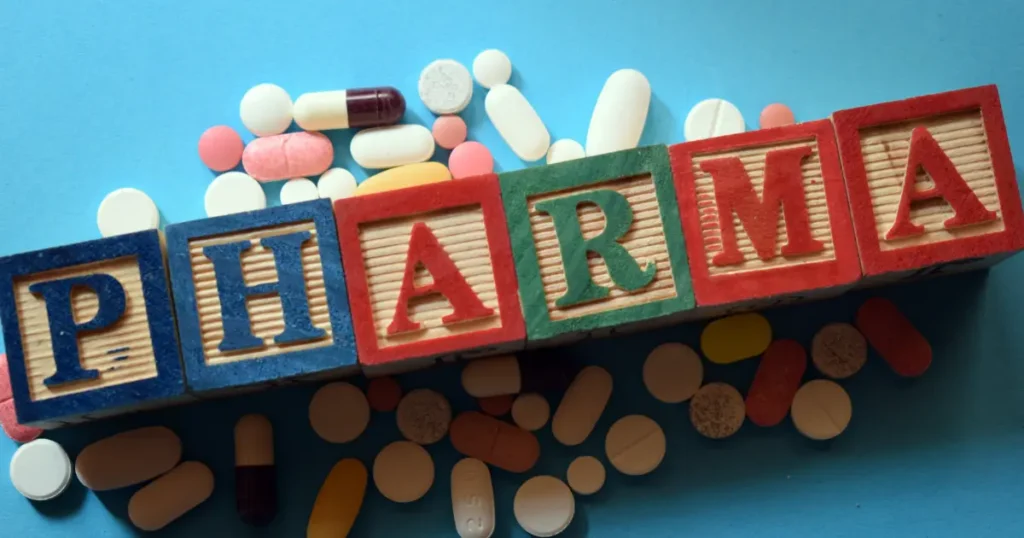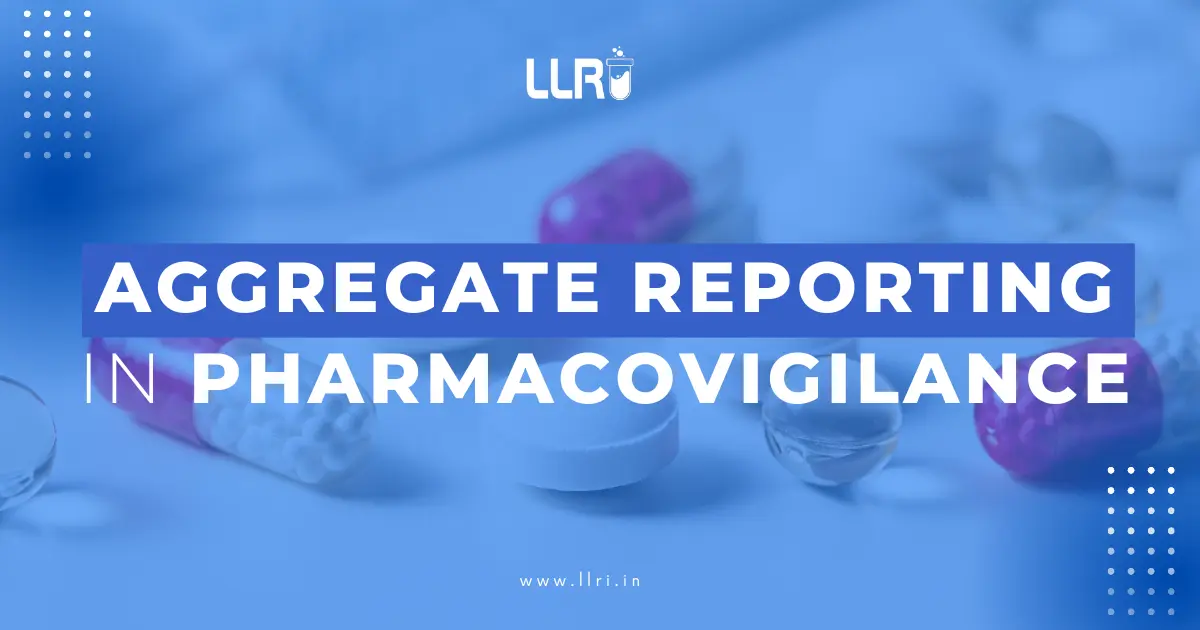Aggregate Reporting in Pharmacovigilance: Pharmacovigilance is at the heart of drug safety and has everything to do with ensuring the safety and efficacy of medicines on the market. One of the central aspects of pharmacovigilance is aggregate reporting, which involves the periodic collection, analysis, and submission of safety data to regulatory authorities.
But is aggregate reporting in pharmacovigilance courses covered in depth? Should pharmacovigilance professionals focus on mastering this skill? More importantly, where can you find expert-led training that teaches aggregate report writing effectively?
At LLRI (Learning Labb Research Institute), we guarantee that students receive in-depth training in aggregate reporting under the guidance of our expert trainer, Nimisha Ramachandran.

What is Aggregate Reporting in Pharmacovigilance?
Aggregate reporting in pharmacovigilance refers to the systematic collection and evaluation of multiple adverse event reports over a defined period rather than focusing on individual cases. It provides a bigger picture of drug safety trends, allowing regulatory bodies and pharmaceutical companies to assess the benefit-risk profile of a drug.
Unlike Individual Case Safety Reports (ICSRs), which deal with single incidents, aggregate reports look at cumulative data, identifying potential safety concerns before they escalate into major public health issues.
According to a WHO pharmacovigilance report, timely submission of aggregate reports has significantly contributed to the early detection of serious adverse events.
Types of Aggregate Reports in Pharmacovigilance
There are several types of aggregate reports, each serving a distinct regulatory purpose:
1. Periodic Benefit-Risk Evaluation Report (PBRER)
- Required worldwide for post-marketing drug safety monitoring.
- Focuses on benefit-risk analysis over time.
- Submitted at intervals such as six months, annually, or every five years.
2. Periodic Safety Update Report (PSUR)
- A detailed safety review covering all reported adverse drug reactions (ADRs).
- Required for marketed drugs, mainly in the European region.
- Helps regulatory authorities decide if a drug needs new safety measures.
3. Development Safety Update Report (DSUR)
- Used for drugs in clinical trials.
- Submitted annually to ensure ongoing safety evaluations.
4. Risk Management Plan (RMP)
- Focuses on preventive strategies for high-risk drugs.
- Includes additional safety measures, patient education, and long-term monitoring.
Mastering aggregate report writing is essential for pharmacovigilance professionals, as regulatory bodies worldwide strictly enforce submission timelines.

Aggregate Reporting in Pharmacovigilance Courses: How We Teach It at LLRI
At LLRI (Learning Labb Research Institute), we offer in-depth training on aggregate reporting as part of our clinical research courses which comprises of pharmacovigilance as one of the primary topics.
What Do Our Courses Cover?
- Aggregate reporting definition and importance
- Regulatory requirements (India, US, EU, global)
- Practical training in writing PBRERs, PSURs, and DSURs
- Hands-on sessions on safety databases like Argus, ArisG, and VigiBase
- Case studies on drug safety monitoring and risk assessment
Our expert trainer, Nimisha Ramachandran, brings years of industry experience in pharmacovigilance and ensures that students gain practical exposure to real-world drug safety scenarios.
“The ability to analyze cumulative drug safety data effectively is what differentiates a skilled pharmacovigilance professional. Our courses are designed to provide exactly that.” – Nimisha Ramachandran, Expert Trainer at LLRI.
If you’re considering a career in pharmacovigilance, enrolling in our clinical research training program will give you a competitive edge in the industry.
Why Choose LLRI for Pharmacovigilance Training?
If you’re looking for a clinical research training center that specializes in pharmacovigilance, LLRI is your best choice.
- Expert-led training – Learn from Nimisha Ramachandran, an industry expert.
- Practical hands-on sessions – Work on real-world aggregate report writing exercises.
- Affordable clinical research course fees – Competitive pricing for students and professionals.
- Flexible learning options – Online and classroom courses available.
- Industry recognition – LLRI certifications are valued by pharmaceutical and biotech companies.
Whether you are a graduate, postgraduate, or working professional, LLRI’s courses will equip you with the skills to excel in pharmacovigilance and aggregate reporting.

How to Master Aggregate Report Writing?
To excel in aggregate reporting, follow these steps:
- Understand regulatory guidelines – Learn about ICH E2C, ICH E2E, and GVP (Good Pharmacovigilance Practices).
- Get hands-on experience – Practice mock PSURs and PBRERs in our training sessions.
- Use safety databases – Gain expertise in tools like Argus Safety and VigiBase.
- Stay updated – Follow changes in pharmacovigilance regulations from WHO, FDA, and EMA.
By completing LLRI’s training, you will gain both theoretical and practical expertise in aggregate report writing.
On A Final Note…
Aggregate reporting in pharmacovigilance is an integral element of drug safety and regulatory compliance. It is a core topic in our pharmacovigilance courses at LLRI, where our expert trainer, Nimisha Ramachandran, provides training on writing PBRERs, PSURs, and DSURs.
If you’re looking for the best institute for a PG Diploma in Clinical Research, LLRI is your go-to destination. Gain practical skills, hands-on experience, and industry recognition to advance your career in pharmacovigilance.
Interested in learning from our experts? Enroll in our clinical research course today!
FAQs
-
What is aggregate reporting in pharmacovigilance?
It involves compiling multiple adverse event reports to assess drug safety over time.
-
Is aggregate reporting covered in pharmacovigilance courses?
Yes! At LLRI, we teach aggregate reporting in-depth with hands-on exercises.
-
Who teaches pharmacovigilance courses at LLRI?
Our expert trainer, Nimisha Ramachandran, leads the program with industry-focused training.
-
What is the clinical research course fee at LLRI?
LLRI offers affordable clinical research course fees with flexible payment options.
-
Which is the best institute for PG Diploma in Clinical Research?
LLRI is one of the best clinical research institutes, providing top-notch training in pharmacovigilance.

